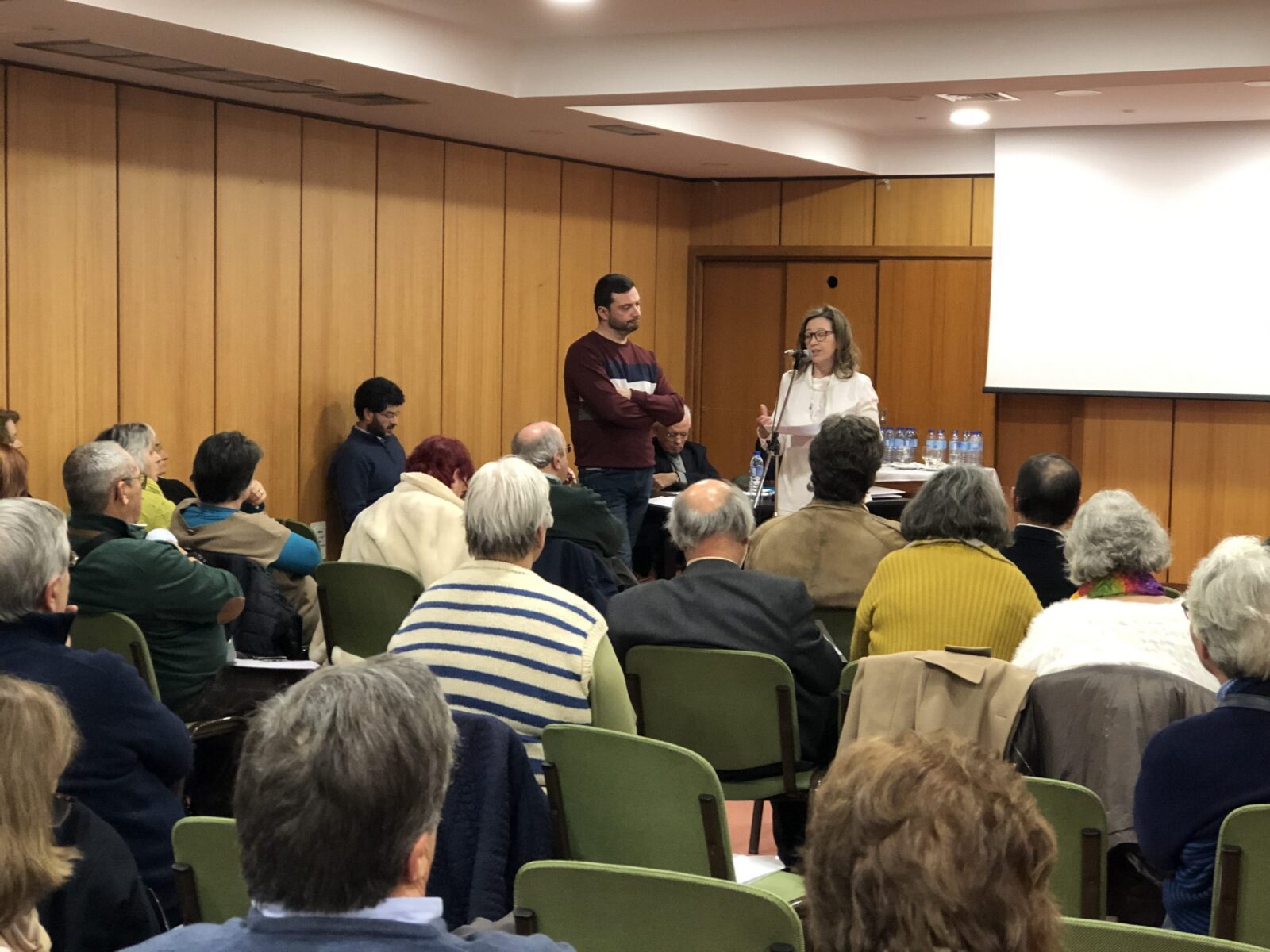Margarida Monteiro was present at the XV National Meeting of the Pastoral of the Penitentiary in Fátima
Margarida Monteiro, was present at the XV National Meeting of the Pastoral of the Penitentiary in Fátima, with the presence of the Auxiliary Bishop of Lisbon, D. Joaquim Mendes and the General Director of Prisons, Dr. Romulus Matthew.
It was this weekend, the 7th and 8th, that the XV National Meeting of the Pastoral of the Penitentiary took place in Fátima, under the theme Prisons and “Windows with a Horizon”, a theme in the line of thought and action of Pope Francis, related to people in situations of deprivation of liberty. Present at the meeting were the Auxiliary Bishop of Lisbon and member of the Episcopal Commission for Social Pastoral and Human Mobility, D. Joaquim Mendes, Father João Gonçalves, National Coordinator of the Penitentiary Pastoral of the Catholic Church of Portugal and the General Director of Prison Services, doctor Romulus Matthew.
In her first speech, Margarida states “that a clear sign of the health of a society is the way it treats its inmates and its elderly”.
Already in the second intervention and now as a representative of a working group, Margarida takes the opportunity to convey her convictions, “ No one can descend lower than despair nor fly higher than hope. No prisoner should continue to be treated like a criminal, because the man who arrives on the first day is not the same with each passing day. It is up to us, as a society, to make these men and women believe that it is within their power to change their lives. ????????
At this meeting, Dr. Rómulo Mateus, shared several concerns such as with non-imputable prisoners, who are “doubly penalized and often forgotten”, but stressed that “the paradigm is changing” and intends to “defend that these people, once stabilized, are delivered to institutions of civic health”. Rómulo Mateus also mentioned that the elderly in prisons are a concern, Portugal has the “fourth oldest population in Europe”, and it is necessary to “alert the community to a problem that is moving into the prison system”, and in the context of the young people also warned that the “prison system makes people out of date and excludes them from the digital world”.
“We don’t want prisons to have revolving doors.”
Referring to the trafficking of cell phones in prisons, Rómulo Mateus noted the importance of “facilitating access to telephone contacts” for inmates to speak “with their family” and highlighted that in some countries, “it caused the trafficking of cell phones to fall, tension between guards and inmates, and the suicide rate”.
We also highlight 3 proposals that came out of the work, with the volunteering groups:
- Take advantage of Pope Francis’s visit to Portugal at the Youth Days in 2022 and ask for an amnesty for young prisoners;
- Reduce prison time, meeting what is already practiced in the European community;
- Commit to training in emotional management for volunteers.
